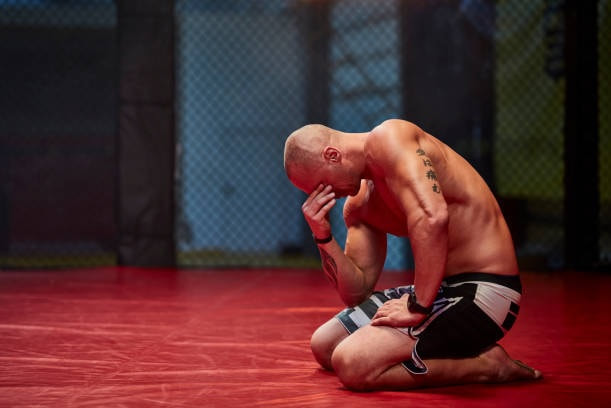Being Hard on Yourself
I am terrible at most sports, but I really don’t mind. Sure, if I woke up one day and could bowl over 100 consistently, I would be happy, but I know that is not going to happen. Not unless I get myself to a lane a few times a week. See, I carefully chose my skill sets. I chose what I dedicated my time, sweat, body, and mind to. I have never been a talented athlete. Things I didn’t focus on, I expect myself to struggle with, and struggling is ok. Challenge me to a game of HORSE and I cannot guarantee I’ll be any sort of a challenge. The best I can do is get the basketball to hit the backboard most of the time, but it isn’t getting much net. Hours in practice and learning lead to competency, so unless you’re gifted, you’re probably not going to be great at things you haven’t worked for. Again, that’s ok.
Some of the newer student’s that come into the academy have a tendency of being frustrated with themselves fairly quickly. One student in particular, who I will not be calling out directly, has unusually high expectations for themselves. In terms of performance and development, this student is right on track. They don’t learn slowly and they don’t catch on fast; they’re just normal; just like I was. Having a high standard for oneself is valuable, but it comes with a need for balance. Wanting the best from yourself is one thing, but expecting it immediately, and growing angry at yourself if it isn’t, is unreasonable and discouraging. This student loves to discourage themselves right after a mistake.
Some of the newer student’s that come into the academy have a tendency of being frustrated with themselves fairly quickly. One student in particular, who I will not be calling out directly, has unusually high expectations for themselves. In terms of performance and development, this student is right on track. They don’t learn slowly and they don’t catch on fast; they’re just normal; just like I was. Having a high standard for oneself is valuable, but it comes with a need for balance. Wanting the best from yourself is one thing, but expecting it immediately, and growing angry at yourself if it isn’t, is unreasonable and discouraging. This student loves to discourage themselves right after a mistake.
I have been around a long time and I know what it takes for me to become good at fighting. I learn the concept or technique, I fumble it, and then I walk away and create opportunities for myself to apply whatever it is live. I believe in the technique, I believe in the power of repetition, and I trust the process. It is harder for a newbie to do this. I have tasted the fruits of labor and know that eventually things pay off. If you are new and have only been told a sweep works, but have never actually hit it live yourself, that doubt of whether or not it’ll ever happen creeps in. Lots of people’s “firsts” work as psychological milestones. If I could accomplish something once, I know I can do it again, and maybe even do it better. Up until that first success, there is a thought of “never” that looms. Self-doubt is reinforced by early failures, but failure is necessary.
The best advice I can give to those struggling in their training is to be patient and to be humble. These are lifelong things all martial artists have to work at. Listen to your coaches and trust their advice. Give yourself time and embrace the failure that comes with self-improvement. Be hard on yourself but be realistic. My new student has made many strides in their training, but I have to very clearly point out these strides so they do not bury them under the failures. There is no ceiling in martial arts. There is always more to learn and a better version of yourself to become. Once something becomes easy there is a bigger, better, and tougher version, variation, or level-up to come along and knock you on your butt. Embrace it.
P.S.
If you are a student of mine reading this, and you think this article is about you, it probably is. Keep your head up and be kind to yourself. Osss.

 RSS Feed
RSS Feed